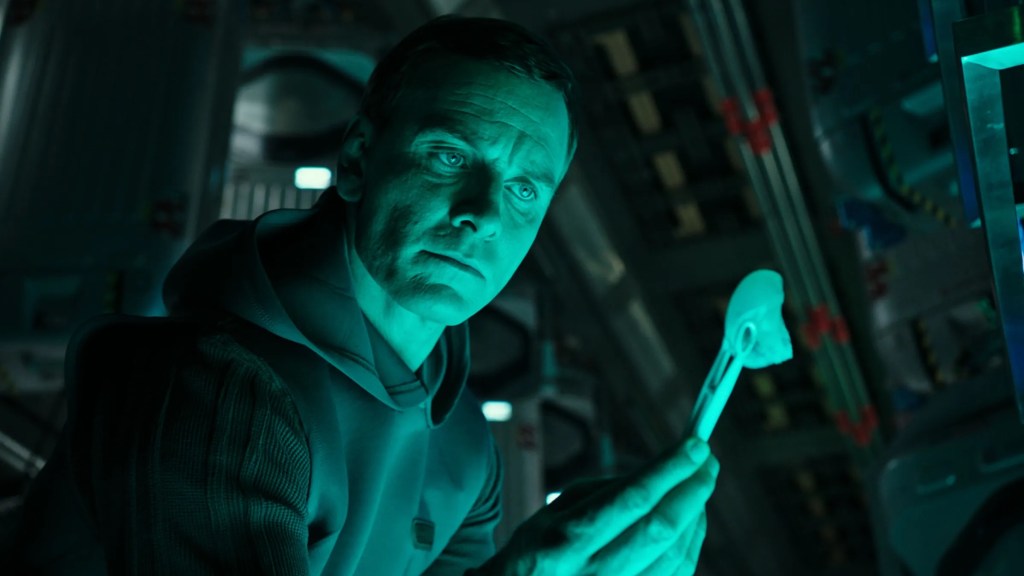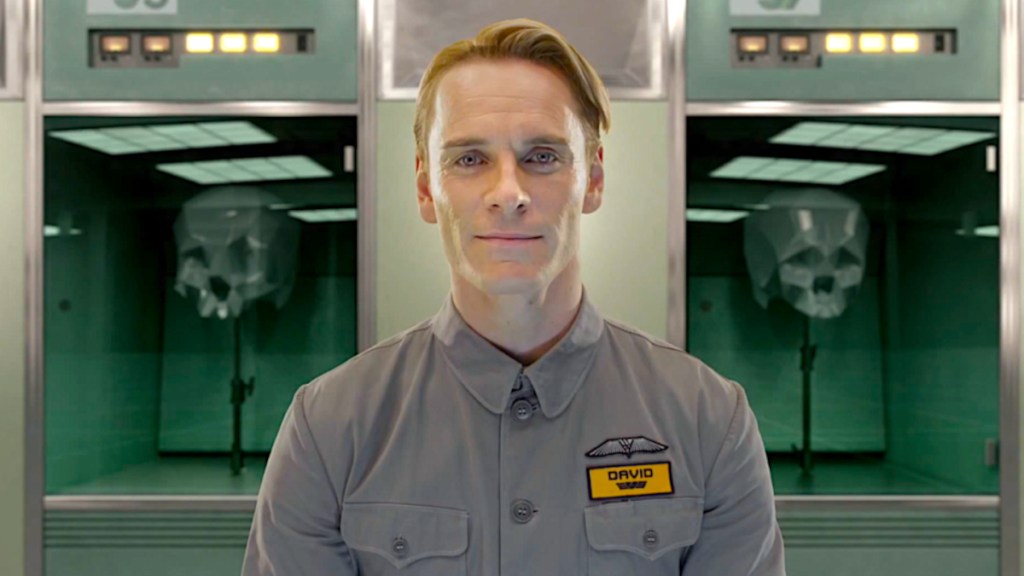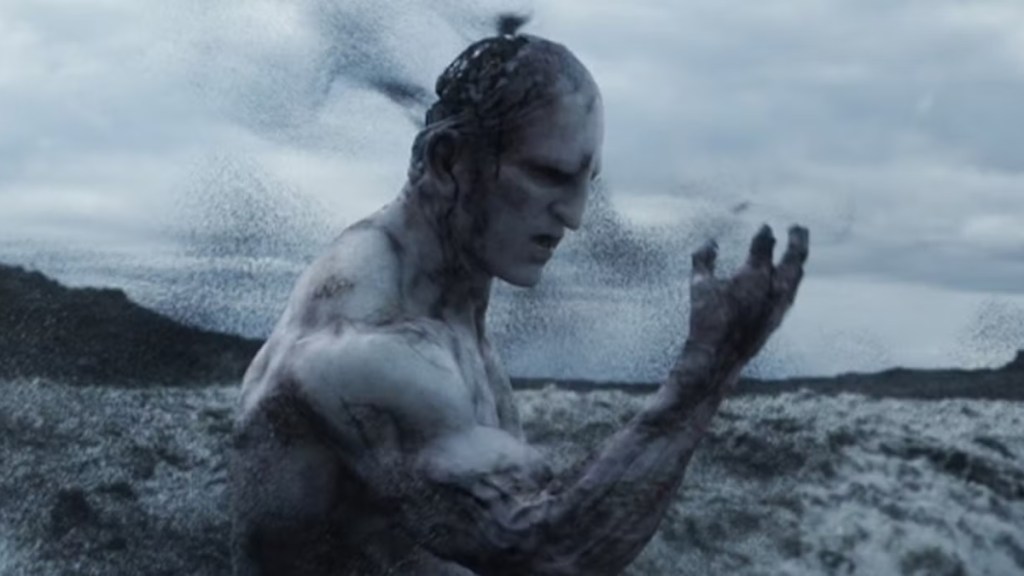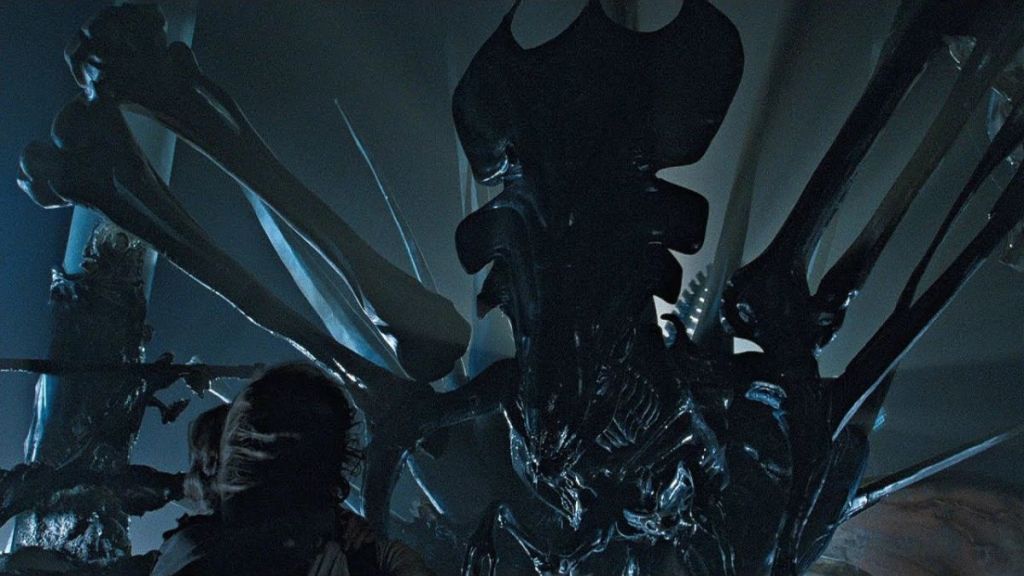Ridley Scott got fans of the Alien franchise excited when he indicated in a recent interview that making a sequel to Alien: Covenant is part of his directing agenda before retiring. It was especially good news to hear for Alien diehards who supported Scott’s ambitious prequel film/spinoff Prometheus (2012), and even tolerated that film’s sequel, Alien: Covenant (2017), which tends to be one of the lowest-ranked entries in the franchise. It also represents an opportunity for the director to make a creative turnaround nobody would’ve ever expected, and complete one of the best film trilogies there is.
Videos by ComicBook.com
If you’ve seen Ridley Scott’s Alien prequel films, then you should already know that there’s only one place for Ridley Scott to (properly) steer this story next.
Ridley Scott Can Finally Close the Gap Between Prometheus & Alien (1979)

There is only one true throughline between Prometheus and Alien: Covenant, and that is the role of Michael Fassbender’s David. David is one of the prototype synthetic beings (androids) that Peter Weyland (CEO of Weyland Corp) created. David was designed to mimic human thinking and learning processes as closely as possible – a serious design flaw that led to the first line of synths being too idiosyncratic and free-thinking for their own good. In David’s case, he followed Mr. Weyland’s orders until his creator died during the USCSS Prometheus‘s doomed expedition.
After that, David’s programming initiatives for creation and free-thinking spiraled out of control: he tracked the Engineer race to one of their worlds and committed mass genocide using the black goo mutagen, before turning the entire world (and his human companion Elizabeth Shaw) into a lab for his unholy mutations, until he finally genetically engineered the facehugger parasite and its xenomorph larva system. The final twist in Covenant was that David switched identities with the “good” synth character Walter, and smuggled himself (and some facehugger embryos) aboard the USCSS Covenant, seizing control of the ship, its crew, and a cargo hold full of colonists all tucked away in cryogenic sleep.
There’s no doubt the core canon of the Alien franchise is a mess. Scott never intended (or supported) his 1979 sci-fi/horror film becoming a franchise; the three sequels to Alien followed the character lore of Sigourney Weaver’s Ellen Ripley more so than the lore behind the xenomorphs, and half of Ripley’s story is now considered non-canon material (Alien 3, Alien Resurrection). When Ridley Scott came in with Prometheus, it only dug the hole deeper, as his prequel story added whole new dimensions to Alien without actually explaining the events that led to the Engineer ship crashing on LV-426, or how the traditional xenomorph drone was first created. Covenant at least answered the latter part of that mystery; now let’s deal with the former.
Alien: Covenant’s Sequel Must Complete the Prometheus Trilogy

Fassbender’s David has arguably been the most fascinating antagonist (if not overall character) in the Alien franchise. He epitomizes the series’ “man vs. nature vs. machine” theme, as a synth who breaks free of humanity’s programming chains, only to create a new biological lifeform that then threatens humanity (circle of life?). So far, this conflict has only been played out on a minor scale in Scott’s prequel films; small skirmishes, at best. Let’s blow things out into an all-out battle in the third film!
As things stand in the Prometheus series, David has the Covenant hostage and is presumably spreading the xenomorph infestation across different planets in the galaxy. Weyland-Yutani can presumably still track their property (David and the ship), and would, presumably, wonder what became of their investment. Similarly, we have all indications from previous films that the Engineer race is a diaspora, spread across the cosmos in different settlements, installation worlds where weapons/experiments are kept, or on new worlds that are scouted and terraformed using the mutagen. That’s all to say: eventually, the Engineers might also get around to wondering who or what wiped out one of their home worlds, and is spreading an unholy infestation using their biotechnology.

With all those dangling threads on the board, Ridley Scott has the biggest opportunity in the world to tell a grandiose Alien prequel trilogy capper, which sees David and his army of xenomorphs going up against a fleet of Engineers, and the unlucky human forces that get caught in the middle. It could be all the body and creature horror of Alien, with an action movie scale greater than Aliens. There are also newer elements of the franchise (thanks to Romulus and the Alien: Earth TV series) Scott could borrow from, including other forms of machine life (cyborgs), rival corporations getting in the mix, or the human-enhancement serum Z-01 that is the golden prize hiding within xenomorph DNA.
That’s not to take away from the expected novelty of new horrors: Engineers being taken down by traditional facehuggers is something we haven’t seen yet (but canon requires); nor are the kind of xenomorphs that would hatch from that. So already there’s easy potential for new creature design that the franchise can sell on a poster. If Scott really wants to cross “t’s” and dot “i’s,” we could get the twist that a facehugger infecting an Engineer is how a Xenomorph Queen was first born.

Bottom line: this should be a layup. A victory lap. The kind of big, epic, yet still gritty sci-fi/horror nightmare that would actually bring both halves of Sir Ridley Scott’s filmmaking styles together. And the only thing – the only thing – required to cement this film and the whole Prometheus trilogy in greatness, is that the epic battle end with an engineer ship fleeing the scene, unknowingly towing some form of xenomorph onboard. That ship crashes on LV-426 as the “Space Jockey” dies, and Ridley Scott would be exalted as having literally landed a franchise ship many thought had been lost in space a decade ago.
Let’s not make it hard, let’s not miss the mark. We assume that every Alien fan knows how this should go – but maybe you have other ideas?
Prometheus, Alien: Covenant, Alien (1979), and Alien: Earth can all be streamed on Hulu-Disney+.









